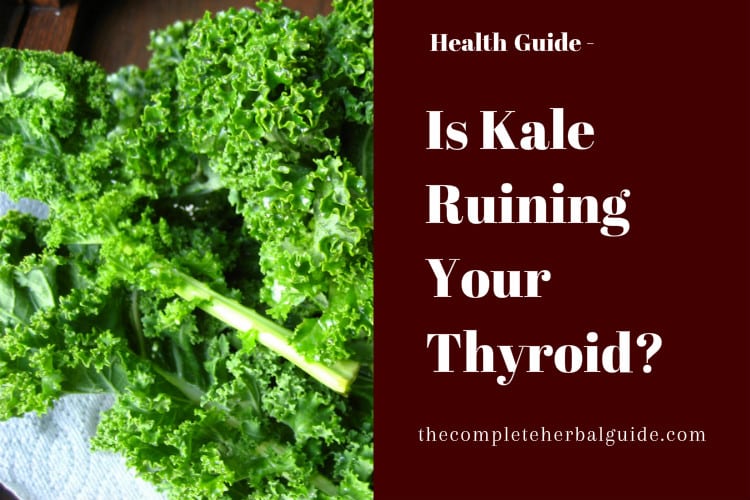
Is Your Thyroid Out of Whack?
Does fatigue drag you down day after day? Do you have brain fog, weight gain, chills, or hair loss? Or is the opposite true for you: Are you often revved up, sweaty, or anxious? Your thyroid gland could be to blame. This great regulator of body and mind sometimes goes haywire, particularly in women. Getting the right treatment is critical to feel your best and avoid serious health problems.
Table of Contents
What Is the Thyroid Gland?
The thyroid is a butterfly-shaped gland in the front of the neck. It produces hormones that control the speed of your metabolism — the system that helps the body use energy. Thyroid disorders can slow down or rev up your metabolism by disrupting the production of thyroid hormones. When hormone levels become too low or too high, you may experience a wide range of symptoms.
Symptoms
Weight Gain or Loss
An unexplained change in weight is one of the most common signs of a thyroid disorder. Weight gain may signal low levels of thyroid hormones, a condition called hypothyroidism. In contrast, if the thyroid produces more hormones than the body needs, you may lose weight unexpectedly. This is known as hyperthyroidism. Hypothyroidism is far more common.
Swelling in the Neck
A swelling or enlargement in the neck is a visible clue that something may be wrong with the thyroid. A goiter may occur with either hypothyroidism or hyperthyroidism. Sometimes swelling in the neck can result from thyroid cancer or nodules, lumps that grow inside the thyroid. It can also be due to a cause unrelated to the thyroid.
Changes in Heart Rate
Thyroid hormones affect nearly every organ in the body and can influence how quickly the heart beats. People with hypothyroidism may notice their heart rate is slower than usual. Hyperthyroidism may cause the heart to speed up. It can also trigger increased blood pressure and the sensation of a pounding heart, known as heart palpitations.
Changes in Energy or Mood
Thyroid disorders can have a noticeable impact on your energy level and mood. Hypothyroidism tends to make people feel tired, sluggish, and depressed. Hyperthyroidism can cause anxiety, problems sleeping, restlessness, and irritability.
Feeling Too Cold or Hot
Thyroid disorders can disrupt the ability to regulate body temperature. People with hypothyroidism may feel cold more often than usual. Hyperthyroidism tends to have the opposite effect, causing excessive sweating and an aversion to heat.
Other Symptoms of Hypothyroidism
- Hypothyroidism can cause many other symptoms, including:
- Dry skin and brittle nails
- Numbness or tingling in the hands
- Constipation
- Abnormal menstrual periods
- Other Symptoms of Hyperthyroidism
Hyperthyroidism can also cause additional symptoms, such as:
- Muscle weakness or trembling hands
- Vision problems
- Diarrhea
- Irregular menstrual periods
Diagnosing Thyroid Disorders
If your doctor suspects a thyroid disorder, a blood test can help provide an answer. This test measures the level of thyroid-stimulating hormone (TSH), a kind of master hormone that regulates the work of the thyroid gland. If TSH is high, it typically means that your thyroid function is too low (hypothyroid). If TSH is low, then it generally means the thyroid is overactive (hyperthyroid.) Your doctor may also check levels of other thyroid hormones in your blood. In some cases, imaging studies are used and biopsies are taken to evaluate a thyroid abnormality.
Hashimoto’s Disease
The most common cause of hypothyroidism is Hashimoto’s disease. This is an autoimmune disorder in which the body attacks the thyroid gland. The result is damage to the thyroid, preventing it from producing enough hormones. Hashimoto’s disease tends to run in families.
Other Causes of Hypothyroidism
In some cases, hypothyroidism results from a problem with the pituitary gland, which is at the base of the brain. This gland produces thyroid-stimulating hormone (TSH), which tells the thyroid to do its job. If your pituitary gland does not produce enough TSH, your levels of thyroid hormones will fall. Other causes of hypothyroidism include temporary inflammation of the thyroid or medications that affect thyroid function.
Graves’ Disease
The most common cause of hyperthyroidism is Graves’ disease. This is an autoimmune disorder that attacks the thyroid gland and triggers the release of high levels of thyroid hormones. One of the hallmarks of Graves’ disease is a visible and uncomfortable swelling behind the eyes.
Other Causes of Hyperthyroidism
Hyperthyroidism can also result from thyroid nodules. These are lumps that develop inside the thyroid and sometimes begin producing thyroid hormones. Large lumps may create a noticeable goiter. Smaller lumps can be detected with ultrasound.
Thyroid Disorder Complications
When left untreated, hypothyroidism can raise your cholesterol levels and make you more likely to have a stroke or heart attack. In severe cases, very low levels of thyroid hormones can trigger a loss of consciousness and life-threatening drop in body temperature. Untreated hyperthyroidism can cause serious heart problems and brittle bones.
Treating Hypothyroidism
If you are diagnosed with hypothyroidism, your doctor will most likely prescribe thyroid hormones in the form of a pill. This usually leads to noticeable improvements within a couple of weeks. Long-term treatment can result in more energy, lower cholesterol levels, and gradual weight loss. Most people with hypothyroidism will need to take thyroid hormones for the rest of their lives.
Treating Hyperthyroidism
The most common treatment for hyperthyroidism is antithyroid medication, which aims to lower the number of hormones produced by the thyroid. The condition may eventually go away, but many people need to remain on medication for the long term. Other drugs may be given to reduce symptoms such as rapid pulse and tremors. Another option is radioactive iodine, which destroys the thyroid gland over the course of 6 to 18 weeks. Once the gland is destroyed or removed by surgery, most patients must begin taking thyroid hormones in pill form.
Surgery for Thyroid Disorders
Removing the thyroid gland can cure hyperthyroidism, but the procedure is only recommended if antithyroid drugs don’t work, or if there is a large goiter. Surgery may also be recommended for patients with thyroid nodules. Once the thyroid is removed, most patients require daily supplements of thyroid hormones to avoid developing hypothyroidism.
What About Thyroid Cancer?
Thyroid cancer is uncommon and is the least deadly. The main symptom is a lump or swelling in the neck, and only about 5% of thyroid nodules turn out to be cancerous. When thyroid cancer is diagnosed, it is most often treated with surgery followed by radioactive iodine therapy or, in some cases, external radiation therapy.
Natural Remedies
Your Dietary Defense
Making dietary changes is your first line of defense in treating hypothyroidism. Many people with hypothyroidism experience crippling fatigue and brain fog, which prompts reaching for non-nutritional forms of energy like sugar and caffeine. I’ve dubbed these rascals the terrible twosome, as they can burn out your thyroid (and destabilize blood sugar).
Just say no to the dietary bungee cord
Greatly reduce or eliminate caffeine and sugar, including refined carbohydrates like flour, which the body treats like sugar. Make grain-based carbohydrates lesser of a focus, eating non-starchy vegetables to your heart’s content.
Up the protein
Protein transports thyroid hormone to all your tissues and enjoying it at each meal can help normalize thyroid function. Proteins include nuts and nut butter; quinoa; hormone- and antibiotic-free animal products (organic, grass-fed meats, eggs, and sustainably-farmed fish); and legumes.
Note: I’m not a fan of soy and soy products: tofu, soy milk, fake meats, energy bars, etc. Even when organic and non-GMO, soy can impede cell receptors and disrupt the feedback loop throughout your entire endocrine (hormonal) system.
Get fat
Fat is your friend and cholesterol is the precursor to hormonal pathways; if you’re getting insufficient fat and cholesterol, you could be exacerbating hormonal imbalance, which includes thyroid hormones. Natural, healthful fats include…
- olive oil
- ghee
- avocados
- flax seeds
- fish
- nuts and nut butter
- hormone- and antibiotic-free full fat cheese
- yogurt
- cottage cheese (yes, full fat, not skim)
- coconut milk products.
Nutrient-up
While nutritional deficiencies may not be the cause of hypothyroidism, not having enough of these micronutrients and minerals can aggravate symptoms: vitamin D, iron, omega-3 fatty acids, selenium, zinc, copper, vitamin A, the B vitamins, and iodine.
A few highlights:
It’s commonly believed that hypothyroidism is due to insufficient iodine, but this isn’t true. Dr. Kharrazian states that if you have Hashimoto’s, taking supplemental iodine is like throwing gasoline on a fire, so eschew iodine supplements and iodized salt. Primary sources of iodine: sea vegetables and seafood. Secondary sources: eggs, asparagus, lima beans, mushrooms, spinach, sesame seeds, summer squash, Swiss chard, and garlic.
Optimal vitamin D levels are between 50-80 ng/mL; anything below 32 contributes to hormone pathway disruption.
Omega-3s, found in fish, grass fed products, flaxseeds, and walnuts, are the building blocks for hormones that control immune function and cell growth, are critical to thyroid function, and improve the ability to respond to thyroid hormones.
Go 100% gluten-free
The molecular composition of thyroid tissue is almost identical to that of gluten. So for those with Hashimoto’s, it’s a case of mistaken identity. Eating gluten can increase the autoimmune attack on your thyroid.
Be mindful of goitrogens
These are foods that can interfere with thyroid function. Goitrogens include broccoli, Brussels sprouts, cabbage, cauliflower, kale, kohlrabi, rutabaga, turnips, millet, spinach, strawberries, peaches, watercress, peanuts, radishes, and soybeans. Does it mean that you can never eat these foods? No, because cooking inactivates goitrogenic compounds and eating radishes and watercress in moderation isn’t going to be a deal-breaker.
Go for the glutathione
Glutathione is a powerful antioxidant that strengthens the immune system and is one of the pillars of fighting Hashimoto’s. It can boost your body’s ability to modulate and regulate the immune system, dampen autoimmune flare-ups, and protect and heal thyroid tissue.
While few foods contain glutathione, there are foods that help the body produce glutathione: asparagus, broccoli, peaches, avocado, spinach, garlic, squash, grapefruit, and raw eggs. A plant substance found in broccoli, cauliflower, and cabbage, (those goitrogens), helps replenish glutathione stores.
Address underlying food sensitivities
Just like the body’s attack on the thyroid in the presence of Hashimoto’s, the body will also see offending or inflammatory foods as an invader and will up the ante on the autoimmune response.
Do a gut check
A whopping 20 percent of thyroid function depends on a sufficient supply of healthy gut bacteria, so it’s best to supplement with probiotics (friendly intestinal bacteria).
Address silent inflammation with whole foods nutrition
Systemic inflammation and autoimmunity often go hand-in-hand.
The thyroid and adrenal gland connection
There is an intimate connection between your thyroid and adrenal glands and it’s uncommon to have hypothyroidism without some level of adrenal fatigue. The thyroid and adrenals are like Frick and Frack – so tightly in cahoots that it’s not effective to address one without the other.
Look at your stressors and practice relaxation
The thyroid is a very sensitive gland and is exceptionally reactive to the stress response.
Ask for the thyroid collar
The thyroid is sensitive to radiation, so next time you’re getting an x-ray to the dentist, ask for the thyroid collar. Do not let your thyroid get zapped!






